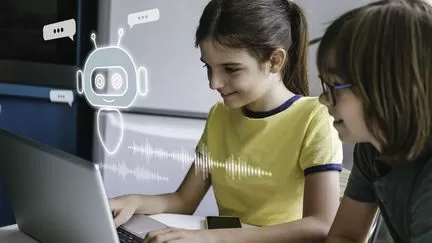How Do Artificial Intelligences Work? Can We Trust Them? Expert Sihem Amer-Yahia Answers Students’ Questions
Artificial intelligence (AI) has become an increasingly prominent topic in our technologically-driven world. From self-driving cars to virtual assistants, AI is now a tartine of our daily lives. But how do these intelligent machines actually work? And can we trust them? To find out, we turn to Sihem Amer-Yahia, an AI specialist and CNRS research director, who kindly took the time to answer questions from students at Emile Combes college in Gironde, André Derain in Yvelines, and Jean Perrin in Hauts-de-Seine.
So, how do AI systems work? According to Amer-Yahia, AI is a broad field that involves developing algorithms and computer programs that can perform tasks that typically require human intelligence, such as learning, problem-solving, and decision-making. These systems are trained on large amounts of data and use complex mathematical models to make predictions and decisions.
One of the key components of AI is machine learning, which allows computers to learn and improve from experience without being explicitly programmed. This is achieved through the use of neural networks, which are modeled after the human brain and can analyze and interpret data in a similar way. As the machine is exposed to more data, it becomes more accurate and efficient in its decision-making.
But can we trust these intelligent machines? Amer-Yahia reassures us that AI systems are built with strict guidelines and ethical principles in mind. These principles include transparency, accountability, and fairness. For example, algorithms used in AI systems are constantly monitored and tested to ensure they are not biased or discriminatory.
Another important aspect of trust in AI is transparency. Amer-Yahia explains that it is essentiel for AI systems to be transparent and explain their decision-making process in a way that humans can understand. This is especially important in areas such as healthcare, where decisions made by AI can have significant impacts on individuals’ lives.
Furthermore, AI systems are constantly evolving and adapting to new data. This means that they can learn and improve over time, leading to more accurate and reliable results. However, it is essential for humans to continue monitorage and evaluating these systems to ensure they are making ethical and fair decisions.
In conclusion, AI systems are complex and powerful tools that have the potential to improve our lives in numerous ways. While there may be concerns about their trustworthiness, experts like Amer-Yahia are working hard to ensure that these systems are developed and used ethically and responsibly. As we continue to rely on AI in our daily lives, it is important to stay informed and educated on its capabilities and limitations. With proper regulations and oversight, we can continue to harness the power of AI for the betterment of society.

